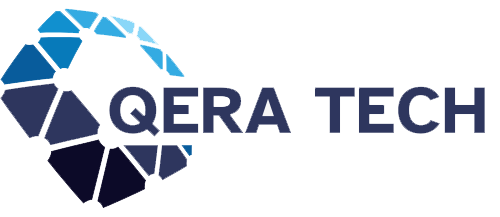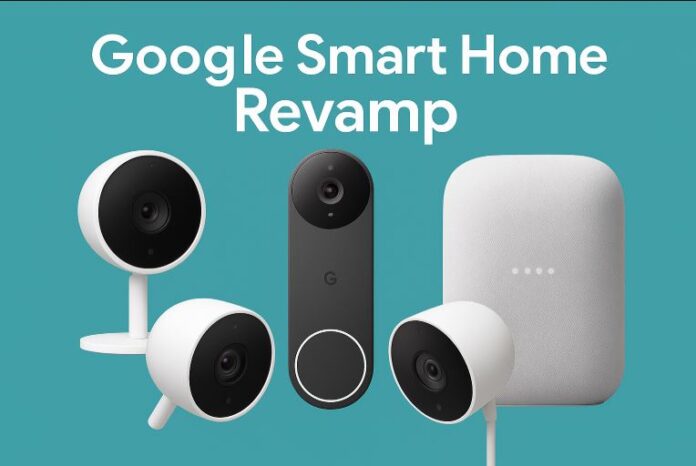A New Wave of Smart Home Gadgets
When Google rolls out a fresh batch of Nest hardware, the tech world pays attention. This week was no exception. Just one day after Amazon flaunted its latest Echo lineup, Google unveiled a major smart home revamp featuring upgraded Nest cameras, a new doorbell, a compact home speaker, and perhaps the biggest news of all, a full integration of Gemini AI across devices.
It’s not just about sharper cameras or sleeker gadgets this time. Google is reimagining how its smart ecosystem works by giving Gemini the keys to the house — literally. And that could completely change how millions of people interact with their homes.
What’s New in Google’s Smart Home Lineup?
Google’s latest hardware wave includes four main products:
-
Nest Cam Indoor (3rd Gen) – $100
-
Nest Cam Outdoor (2nd Gen) – $150
-
Nest Doorbell (3rd Gen) – $180
-
Google Home Speaker (2026 launch) – $99
The cameras and doorbell are already available to purchase, while the Home Speaker is slated for spring 2026. Google insists the delay isn’t a supply issue but a strategic move to prioritize rolling out Gemini AI updates to existing users first.
That’s an interesting contrast with Amazon, which plans to ship its new Echo devices this fall. It almost feels like Google is betting that Gemini’s rollout will make a bigger splash than putting a new speaker on shelves right away.
Cameras Get Sharper Vision: 2K Video with HDR
At first glance, the biggest upgrade is obvious: 2K video resolution.
The new Nest cameras jump from 1080p to 2K, giving crisper detail, especially when you zoom in or crop footage. Each camera also features HDR video and a wide field of view:
-
Nest Cams: 152° view
-
Nest Doorbell: 166° diagonal view (perfect for catching packages or deliveries left on the ground)
Improved low-light performance means these cameras stay in full color longer before switching to infrared night vision. That’s a big win for anyone who’s ever squinted at grainy black-and-white footage trying to make out what’s happening.
Out of the box, you’ll get six hours of free event history (short 10-second clips). But if you’re serious about security or just like keeping tabs on things, Google Home Advanced subscriptions unlock up to 60 days of clips and 10 days of continuous video history.
How Does Google Stack Up Against Amazon?
The timing here wasn’t accidental. Amazon unveiled its latest Ring cameras with 4K recording just a day before Google’s event. While Amazon is pushing raw resolution, Google argues that 2K is the sweet spot — high enough for clarity but less demanding on bandwidth.
Think of it like streaming video. Sure, 4K looks gorgeous, but it eats up data. For smart home devices that often need to store and upload footage continuously, 2K strikes a balance between sharpness and practicality.
The Real Star: Gemini AI for Home
The hardware is nice, but the real story is Gemini AI taking over as the brain of the smart home.
Google has officially positioned Gemini as the successor to Assistant. Inside the revamped Google Home app, Gemini isn’t just a background algorithm; it’s a conversational hub.
The redesigned app features three main tabs:
-
Home – Central dashboard of devices.
-
Activity – Timeline of everything happening in your house.
-
Automations – Create and manage routines like “turn on lights at sunset.”
But the real magic is in the new “Ask Home” feature. Instead of rigid commands, you can speak naturally. Want every light off except the bedroom? Just ask. Need to check what happened when that mysterious crash echoed through the living room? Ask Gemini to show you the footage.
It feels less like programming your home and more like having a conversation with it.
Smarter Notifications and Summaries
One of the most annoying things about connected cameras is notification overload. Every motion, every sound, every passing car ping, ping, ping.
Google’s update tackles that with smarter alerts and a new feature called Home Brief. Instead of spamming you with constant updates, Home Brief delivers a condensed summary of several hours of events. You can even ask Gemini specific questions like, “Did anyone drop off a package today?” or “What happened to the vase?” and it will dig up the relevant recording.
This feels like a big quality-of-life improvement. After all, the point of a smart home isn’t to overwhelm you with noise it’s to filter out the clutter and highlight what matters.
Subscription Tiers: Advanced Features Come at a Cost
As with most smart home ecosystems, the really advanced features are paywalled.
-
Google Home Advanced ($20/month or $200/year): 60 days of clips, continuous recording, advanced Gemini features.
-
Google Home Standard ($10/month or $100/year): 30 days of clips, intelligent alerts like package detection, and Gemini Live access.
Yes, it’s another subscription to juggle. But compared to standalone security systems or storage plans, these prices are fairly competitive, especially considering the growing role Gemini plays across the experience.
Gemini Live: Talking to Your Home Like Never Before
If you’ve ever felt a little silly saying “Hey Google” and getting only robotic replies, Gemini Live is here to change that.
With Gemini Live, you can have extended, free-flowing conversations with your home devices. Imagine planning a trip by asking for flights and hotel suggestions, then following up with a request for restaurant options. Or telling your smart speaker, “I’ve got chicken and rice, what can I cook tonight?” and actually getting a decent answer.
Even more impressive: Google is updating older products to support Gemini. Yes, even the Google Home Max from 2017 will get the upgrade. That’s nearly a decade of backward compatibility rare in the fast-moving world of consumer tech.
Why This Matters for the Smart Home Race
When you step back, this update isn’t just about prettier cameras or a slicker app. It’s about Google vs. Amazon two giants racing to dominate the smart home with AI at the core.
Amazon’s Alexa+ is already rolling out, promising more natural conversations. Google’s Gemini for Home is the counterpunch, aiming to make devices smarter, more reliable, and genuinely useful in everyday routines.
It’s no longer just about who sells the most smart speakers. It’s about who can build the most seamless AI-driven home ecosystem.
Personal Take: What Stands Out
I’ve been following smart home tech for years, and here’s what really jumps out:
-
Backward support. Updating decade-old devices with Gemini is almost unheard of. It signals that Google wants long-term trust, not just quick upgrades.
-
Notification sanity. Home Brief might sound small, but it could save users from drowning in alerts. That alone makes the ecosystem more livable.
-
The AI leap. Gemini isn’t just a rebrand of Assistant — it feels like a genuine step toward conversational, contextual smart homes.
Sure, the subscription model may frustrate some. And yes, Amazon’s 4K cameras look flashier on paper. But when you think about how people actually live with this tech, Google’s choices feel more practical.
Final Thoughts
The Google Smart Home Revamp isn’t just a hardware refresh. It’s a statement of intent. With 2K Nest cameras, a new doorbell, a delayed but promising speaker, and Gemini AI weaving everything together, Google is betting that the future of the smart home is less about specs and more about experience.
For customers, the takeaway is clear: if you’re already invested in Google’s ecosystem, things are about to get a lot smarter. And if you’ve been sitting on the fence, this might be the push to choose your camp in the ongoing smart home battle.
Because let’s face it: whether you’re asking about a misplaced vase, planning your weekend, or checking who’s at the door, the way we talk to our homes is changing and Google wants Gemini to be the one answering back.

